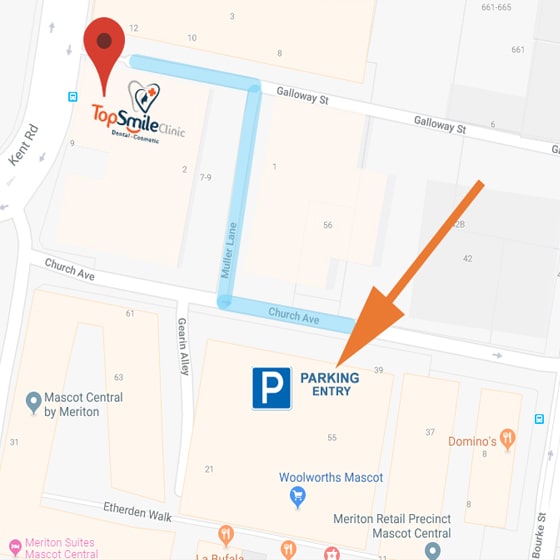TMJ
Signs and symptoms of TMJ disorders may include:
-Pain or tenderness in the jaw, especially at the area of the joint
-Popping/clicking of the jaw
-Pain that feels like a toothache
-Ear pain or sounds of cracking in the ears
-Ringing or popping sounds in the ears (tinnitus) or a sense of fullness in the ears
-Headaches, including migraines
-Blurred vision
--Tight, stiff, or sore jaw or neck muscles
-Muscle spasms in the jaw
-Facial pain, mouth pain, jaw pain, cheek pain, or chin numbness or tingling
-Pain at the base of the tongue
-Pain, swelling, or a lump in the temple area
-Difficulty chewing
-Shoulder pain
-Locking or dislocation of the jaw (usually after widely yawning), referred to as lockjaw
-Dizziness or vertigo
TMJ disorders can also cause a clicking sound or grating sensation when you open your mouth or chew. But if there's no pain or limitation of movement associated with your jaw clicking, you probably don't need treatment for a TMJ disorder.
The temporomandibular joint (TMJ) combines a hinge action with sliding motions. The parts of the bones that interact in the joint are covered with cartilage and are separated by a small shock-absorbing disk, which normally keeps the movement smooth.
Painful TMJ disorders can occur if:
-The disk erodes or moves out of its proper alignment
-The joint's cartilage is damaged by arthritis
-The joint is damaged by a blow or other impact
-In many cases, however, the cause of TMJ disorders isn't clear.
-teeth grinding (bruxism),
-poor posture,
-stress or anxiety,
-arthritis and other inflammatory musculoskeletal disorders,
-orthodontic braces, and
-excessive gum chewing.
Factors that increase the risk of developing TMJ disorders include:
-Various types of arthritis, such as rheumatoid arthritis and osteoarthritis
-Jaw injury
-Long-term (chronic) grinding or clenching of teeth
-Certain connective tissue diseases that cause problems which may affect the –
Temporomandibular joint
-Poor posture in the neck and upper back muscles may lead to neck strain and abnormalities
Of jaw muscle function.
-Stress may increase muscle tension and jaw clenching.
-Women 18-44 years of age have increased risk.
-Patients with other chronic inflammatory arthritis have increased risk.
-People with jaw trauma or poorly positioned teeth have increased risk.
-People who have a genetic predisposition to pain sensitivity and increased stress responses
May be more susceptible.
A doctor will diagnose TMJ syndrome by taking the patient's medical history and doing a physical exam to find the cause of the symptoms. There is no specific test to diagnose TMJ syndrome.
A doctor may send the patient to an oral and maxillofacial specialist, an otolaryngologist (also called an ear, nose, and throat doctor or ENT specialist), or a dentist specializing in jaw disorders to confirm the diagnosis.
Sometimes an MRI of the temporomandibular joint may be ordered to detect damage to the cartilage of the jaw joint and to rule out other medical problems.
A condition that may have some similar symptoms to TMJ syndrome is trigeminal neuralgia. The trigeminal nerve supplies nerve impulses to the temporomandibular joint, and when irritated, it can also cause facial pain.
Other causes of face or neck pain include swollen lymph nodes (swollen glands), giant cell arteritis, salivary gland disease, sore throat, ill-fitting dentures, or dental braces.
Many symptoms of TMJ syndrome can respond well to home remedies or stress reduction and relaxation techniques. The following home remedies may provide some relief:
-Ice or cold packs to the area of the joint
-Over-the-counter (OTC) nonsteroidal anti-inflammatory drugs (NSAIDs), such as ibuprofen (Advil, Motrin) or naproxen (Aleve), and other pain relievers, including aspirin (Ecotrin) and acetaminophen (Tylenol)
-Eating soft foods and avoiding chewing gum
-Massage or gentle self-stretching of the jaw and neck muscles (A doctor or physical therapist can recommend appropriate stretches.)
-Relaxation techniques and stress management and reduction
-Some sedative essential oils (such as lavender, chamomile, sweet marjoram, and clary sage) may provide temporary relief from the pain and discomfort of TMJ.
-When home remedies are not effective, medical treatment options may be necessary. Most of
these types of treatments and remedies will not cure TMJ, but they can provide temporary and even long-term relief from the pain symptoms. These include the following:
-Dental splint (occlusal splint or stabilization splint or bite guard), which is a dental appliance placed in the mouth that keeps the teeth in alignment and prevents tooth grinding. This resembles a mouth guard and is usually prescribed and fitted by a jaw specialist.
Botox may be used to relax the muscles of the jaw. However, this is not currently an FDA-approved treatment for TMJ syndrome.
-Physical therapy with jaw exercises can strengthen muscles, improve flexibility, and range of motion.
-Trigger point acupuncture can sometimes be helpful.
-In severe cases, surgery on the jaw or dental surgery may be necessary.
-TMJ arthroscopy or arthrocentesis is a minimally invasive procedure usually done in an outpatient setting. Recovery time for this procedure is about a week.
-Sometimes a total joint replacement is needed. This generally requires a stay in the hospital for several days, and surgery recovery time is four to six weeks.
-The following prescription-strength medicines may be used to treat TMJ:
-Muscle relaxers: metaxalone (Skelaxin), cyclobenzaprine (Flexeril)
-Anti-inflammatory medications: nabumetone (Relafen), meloxicam (Mobic), celecoxib (Celebrex)
-Steroid injections: beclomethasone (Qvar)
-Tricyclic antidepressants: nortriptyline (Pamelor), amitriptyline (Elavil, Endep), and desipramine (Norpramin), imipramine (Norfranil, Tipramine, Tofranil)
Benzodiazapines: diazepam (Valium), clonazepam (Klonopin), alprazolam (Xanax)
Sleep medications: doxepin (Silenor)
Nerve pain medications: gabapentin (Neurontin), topiramate (Topamax), levetiracetam (Keppra), pregabalin (Lyrica)
The prognosis for TMJ syndrome is generally good. There are numerous causes for TMJ syndrome, so the outlook depends on the cause, if known. Most people can manage the discomfort with self-care and home remedies.
Complications of long-term TMJ syndrome include chronic face pain or chronic headaches. In severe situations, where pain is chronic, or associated with other inflammatory disorders, long-term treatment may be necessary.
-using self-care at home, such as
-eating soft foods;
-avoiding chewing gum;
-maintaining proper posture;
-practicing stress reduction and relaxation techniques;
-using dental splint appliances as recommended by a jaw care professional;
-using proper safety equipment to prevent jaw fractures and dislocations while exercising, working, or participating in sports.
Most people who have TMJ experience temporary but recurring pain that may go away on its own. However, some cases result in long-term problems. The most common symptoms of TMJ include headache, face pain and aches in and around your ear.
You may first be diagnosed with TMJ by your primary care provider (PCP), such as a family practitioner, internist, or a child's paediatrician.
Your doctor may refer you to an oral and maxillofacial specialist, an otolaryngologist (also called an ear, nose, and throat doctor or ENT specialist), or a dentist specializing in jaw disorders (prosthodontist, also called a prosthetic dentist) for further treatment.
You may also see a pain-management specialist if your TMJ pain is severe.
The prognosis for TMJ syndrome is generally good. There are numerous causes for TMJ syndrome, so the outlook depends on the cause, if known. Most people can manage the discomfort with self-care and home remedies.
Complications of long-term TMJ syndrome include chronic face pain or chronic headaches. In severe situations, where pain is chronic, or associated with other inflammatory disorders, long-term treatment may be necessary.
Symptoms of TMJ syndrome tend to be episodic and related to stress and lifestyle.
-eating soft foods;
-avoiding chewing gum;
-maintaining proper posture;
-practicing stress reduction and relaxation techniques;
-using dental splint appliances as recommended by a jaw care professional;
-using proper safety equipment to prevent jaw fractures and dislocations while exercising, working, or participating in sports.
TMJ May Not is Curable, But it's Treatable. ... TMJ isn't just something you have to live with.
There are treatments that can reduce your discomfort, lessen your symptoms, and help prevent worsening damage and pain.
Stress and TMJ are often linked to each other. The symptoms of stress often manifest themselves in physical ways, often leading to a TMJ diagnosis. The jaw joint is one of the most complex joints in your body. ... And conversely, anxiety symptoms like tense muscles and jaw clenching can ultimately cause TMJ
Many patients wonder what the difference is, or if there is one at all. Although neuromuscular dentists also use the two terms interchangeably, TMD refers to the actual disorder in which your jaw joint is misaligned. Meanwhile, the joint itself – your temporomandibular joint – is abbreviated TMJ.
"Oral health problems associated with anxiety disorders include canker sores, dry mouth, lichen planus (a common disease affecting the skin and oral mucous membranes), burning mouth syndrome and temporomandibular joint disorders"
Because TMJ is often caused by issues with your bit, correcting that bite quickly and effectively is one of the best ways relieve the pain and pressure of TMJ. ... Even patients whose teeth are relatively straight might still want to get braces to fix the bite problems that are related to TMJ.
An overbite can cause the upper lip to jut out while causing the cheeks to look sunken. Braces change the way your jaw and teeth fit together, creating better harmony throughout the lower half of the face.
Crooked Teeth – Even minor issues with the alignment of the teeth can make it embarrassing to smile or laugh.





















































